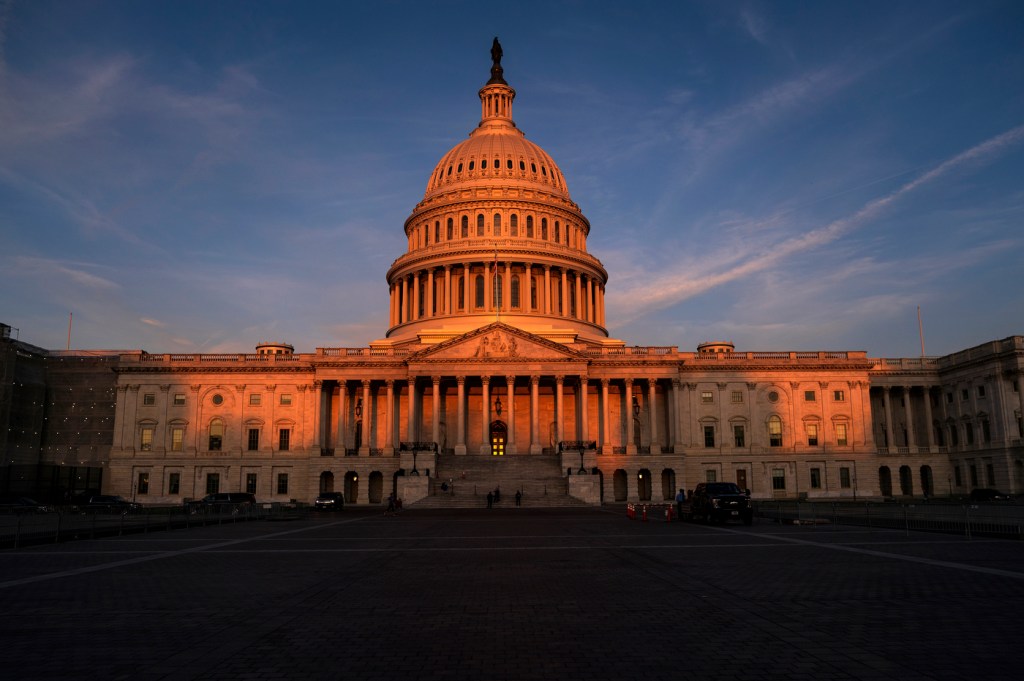Here’s what the impeachment inquiry means for the U.S. economy—and for you.

The opening of an impeachment inquiry of President Donald Trump is a political story with financial implications. How will the volatile investigation affect your pocketbook—and the American economy in general?

Robert Triest, chair and professor of Northeastern’s Department of Economics. Photo by Matthew Modoono/Northeastern University
The first clues emerged Tuesday when U.S. stock markets suffered losses in the hours before House Speaker Nancy Pelosi announced the commencement of a formal impeachment inquiry. On Wednesday, the markets rebounded despite the release of the transcript of Trump’s call with Ukrainian president Volodymyr Zelensky, in which he asked for an investigation of the son of Democratic presidential candidate Joe Biden—an act that set off the impeachment inquiry. The president himself warned that “the markets would crash.”
Since Trump’s election, the Dow Jones Industrial Average has risen 46 percent. But warning signs of a recession have emerged in recent months. How will the markets respond to the daily drama of a turbulent political battle played out on cable news and Twitter?
It is difficult to determine the reasons for movement in the stock market, says Robert Triest, chair and professor of Northeastern’s Department of Economics. Uncertainty can lead to volatility in the market, he notes; but in this case he points out that the launching of a formal inquiry should have been anticipated.
“Generally, the stock market has priced into it everything that is already known and widely expected,” Triest says. “So it’s only the surprises that generally cause a jolt to stock prices.”
The U.S. economy already appeared to be vulnerable, according to economists. Will the impeachment inquiry contribute to a downturn?
It could contribute by increasing uncertainty about future economic policy. On the other hand, economic fundamentals are still pretty good. Recessions by their very nature are very difficult to predict. Some of the risk factors we have now are related to policy uncertainty, for example, the uncertainty about how long the trade war will persist, and how that will evolve. That impacts a kind of uncertainty regarding investment opportunities, and future economic activity.
That is probably at least as important as uncertainty about the impeachment process per se.
Are there historical precedents that can help forecast what may happen to the economy?
The economy actually did quite well during the Clinton impeachment process, that was part of the late 1990s boom. And the political uncertainty regarding Clinton’s impeachment didn’t really seem to weigh very heavily on the economy or on the stock market for that matter. Now that could be because the probability of Clinton actually being convicted in the impeachment process, and removed from office, was perceived to be fairly low.
In Nixon’s case, he did end up resigning. It’s hard to pinpoint the effect of that type of political uncertainty on the economy because there were a lot of other things affecting the global economy at the time that he was under investigation and ultimately resigned. By then there had already been the first of the major oil shocks, and that was something that was a large disruption in global and national economic activity.
How may Trump’s use of Twitter during his investigation influence the economy?
President Trump’s use of Twitter has contributed to the sense of policy uncertainty. And policy uncertainty itself is something that tends to discourage investment because businesses want to know what the regulatory and other policy variables will be like in the future.
At this point, I think people are fairly used to President Trump’s use of Twitter. So the president’s continued use of Twitter probably will not increase the already high level of policy uncertainty.
If the value of stocks go down, will it affect people who don’t have money invested in the markets?
The answer is yes, due to two different channels.
The first channel is that the drop in the market will have some impact on aggregate economic activity. To the extent that the Federal Reserve is not able to fully offset that through monetary policy, then there may be some increased risk of an economic slowdown or recession. That will affect job opportunities for young people, even if they don’t have money in the stock market.
The second channel is more favorable. Suppose that the stock market is overvalued now, for whatever reason, possibly due to what Alan Greenspan called “irrational exuberance” back in the 90s. And suppose young people don’t have much in the way of anything invested in the stock market, but hope to buy stocks in the future, as they extend their careers and put money into a 401k. If the stock market comes down from an irrational high to a more rational level, that helps them because they can buy stocks at a cheaper price and avoid the future slow growth associated with the initial overly-high pricing of equities.
For media inquiries, please contact Marirose Sartoretto at m.sartoretto@northeastern.edu or 617-373-5718.






